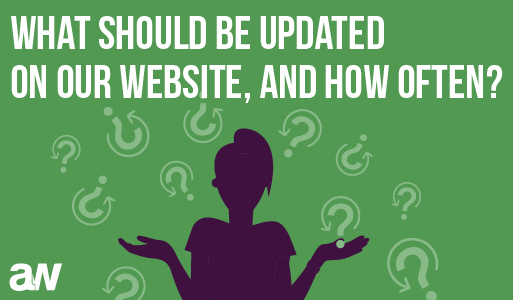Read the press releases from Google regarding its search algorithm updates, or pay attention to the large crowd of SEO experts out there, and you’ll quickly learn that search engines are paying more attention to things like content currency, searcher engagement, and link authority. These notions come up again and again when evaluating the different ways that search rankings are now being calculated.
Read between the lines, though, and you’ll find a few not-so-subtle messages that Google is trying to get across… and that many marketers keep trying to ignore.
Listening to Google is a good idea, and not just because the search engine can send you hundreds or thousands of visits a day. The engineers who run the company are also at the forefront of new technology and behavioral research. They can see data and trends the rest of us can’t.
When you look at the way they keep changing their search formula, you’ll find a few different messages keep being repeated:
Google Wants What Searchers Want
Google has gained its status as the web’s most-visited portal because it gives searchers exactly what they want. It knows real-life individuals are on the hunt for content that is unique, informative, and up-to-date. They want search results that are personalized to their own needs and preferences, not generic rehashes of existing material.
Knowing that its customers (that is, search users) have these preferences, Google is making those factors a bigger and bigger priority in its own search results. That way, it can keep people coming back, instead of using a different search engine and losing out on viewership and ad revenue.
Google Hates What Searchers Hate
If each algorithm update is about giving searchers what they want, it is also (by definition) about giving users less of what they hate. And we all know what searchers hate: web pages that load slowly, broken links, scraped content, and information that’s nonspecific or out-of-date. It’s no surprise Google is starting to tweak its formulas in ways that punish websites with these problems, or ignore them altogether.
These are specific examples, but the reality is searchers hate any result that provides them with a low-quality experience. Over time, anything that makes your online presence less usable or customer-friendly is going to hurt your search engine rankings, as well.
Looking Back Won’t Get You Ahead
The first two details I’ve given really amount to common sense. Google retains its top position by listening to the needs of its users. The problem isn’t that understanding that rationale is difficult; instead, it’s that a lot of business owners and marketers are desperately clinging to ideas that used to work but don’t any longer.
Because it was once relatively easy to improve your search engine positioning by adding lots of keywords to your pages, or taking advantage of link-farming tactics, these became common practice. Rather than update their tactics to adjust to the times, a lot of companies are doubling down on these losing efforts—making things worse for themselves in the process.
It’s time to listen to Google. If you want your website to stand out—with search engine spiders or actual customers—you need fresh, relevant content, not old SEO tricks that can harm your credibility. As the web gets more crowded and sophisticated, gaining customers isn’t about technical tricks or one-off gimmicks, but sharing ideas and information in a way that makes buyers want to learn more.









Leave a comment